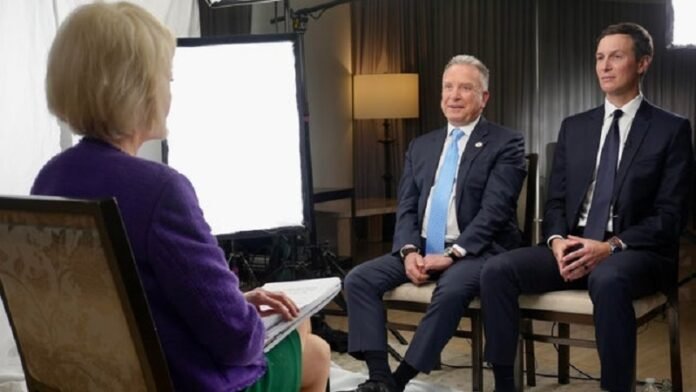As the Middle East’s political map shifts with dizzying speed, Steve Witkoff, envoy of former U.S. President Donald Trump, appeared alongside Jared Kushner on CBS with a bold declaration: a peace agreement between Morocco and Algeria within sixty days.
🇺🇸🇲🇦🇩🇿#FLASH| Steve Witkoff et Jared Kushner annoncent un accord de paix imminent entre le Maroc et l'Algérie.
L'envoyé spécial de Trump au Moyen-Orient, Steve Witkoff, déclare que son « équipe travaille sur un accord de paix entre le Maroc et l'Algérie en ce moment. Il y aura… pic.twitter.com/KK2B9p9iqz
— Morocco Intel (@MoroccoIntel) October 20, 2025
Is this another remnant of Trump-era transactional diplomacy, or a signal of a deeper U.S. strategic redesign in North Africa?
The timing is far from random. Coming on the heels of the Gaza ceasefire, Witkoff’s phrase — “peace has become contagious” — carries more than rhetorical flair. Could peace truly spread across a region long defined by division?
It marks a new phase where relations are reshaped amid shifting regional equations, as Washington seeks to consolidate its presence in a space traditionally considered European, even French, in influence.
This statement also coincides with an important UN moment: the upcoming U.S.-drafted resolution on the Moroccan Sahara, expected at the end of October and described as “the boldest in four decades.”
The draft sets a clear deadline — January 2026 — to reach a final political settlement based on Morocco’s autonomy plan, deemed the most realistic and credible option, while maintaining the principle of self-determination in a formula balancing international law and pragmatic diplomacy. The sixty-day timeframe evoked by Witkoff thus echoes the UN’s own clock — signaling synchronized diplomacy rather than coincidence.
In this sense, the United States is not merely mediating; it is engineering a new regional balance.When senior presidential adviser Mossad Boulos, speaking from Sharm El-Sheikh, affirmed that Washington would soon open a consulate in the Moroccan Sahara, insisting “this is Moroccan Sahara,” the message was clear: ambiguity is no longer American policy.
This U.S. stance aligns with France and the United Kingdom, both backing Morocco’s autonomy proposal as the most credible basis for peace. Spain, meanwhile, walks a tightrope — publicly supporting Rabat since 2022 while cautiously managing tensions with Algiers.
A new Euro-Mediterranean equation is emerging: pragmatic, yet unmistakably American-led.
Behind these movements lies a broader question: is Trump, through his network, seeking to reassert his diplomatic legacy in the Maghreb?
The issue transcends geopolitics, touching on a regional desire to redefine “de-escalation” itself. Since diplomatic ties were cut in 2021, silence has prevailed between Rabat and Algiers. Yet Witkoff’s references to back-channel diplomacy hint at quiet efforts toward normalization. But what kind of reconciliation might this be — genuine healing or a managed détente under U.S. oversight?
Some may see this as a Maghrebi version of the Abraham Accords, minus Israel. The difference is profound: this time, it concerns two neighboring nations bound by geography and divided by memory.
Hence the essential questions: Can peace be decreed, or must it be built? Can Washington impose its strategic logic on a conflict rooted in history rather than politics?
And could the Moroccan Sahara become not a zone of dispute, but the seed of a new Maghreb balance?
Between Witkoff’s optimism, Boulos’s affirmations, and the upcoming Security Council vote, the region stands at a crossroads: either the dawn of genuine reconciliation, or another chapter of marketable peace à la America.
In either case, the enduring question remains: who will shape the Maghreb’s future — geography or geopolitics?


